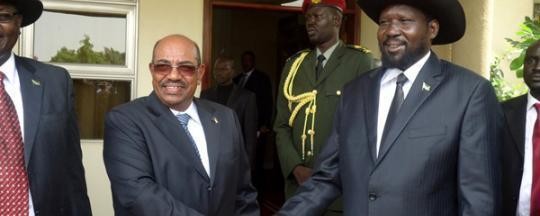South Sudan’s President Salva Kiir planned to build an oil refinery in his hometown in Warrap state in a joint venture between Sudanese company Eyat and South Sudan’s state-run oil company Nilepet.
The refinery aimed to produce 50,000 BPSD in Akon, despite being hundreds of kilometres from the nearest crude production fields.
Kiir and his cabinet selected the Sudanese Eyat Group for the project in spite of earlier anti-corruption reports linking the company to massive irregularities in public roads contracts. The government’s decision also came after Kiir entered into a business partnership with a former senior member of north Sudan’s ruling party, the National Congress Party (NCP), as reported by Radio Tamazuj last week.
The Sudanese company, Eyat Group, has worked extensively in South Sudan’s infrastructure sector through its subsidiary Eyat Roads and Bridges. Another subsidiary, Eyat Oilfield Services Co., was selected to establish Akon Refinery Co. Ltd. (ARC) as a joint venture with state oil company Nilepet.
Kiir’s business partner, former NCP governor of Northern Bahr al Ghazal State Garang Deng Aguer, earlier played a key role in brokering deals between Eyat and the South Sudanese government for construction of roads in greater Bahr al Ghazal.
In a recent interview with Radio Tamazuj, former petroleum minister John Luk said the refinery project began under his predecessor Albino Akol, who commissioned feasibility studies and opened tenders for building contracts after a decision was made to locate the refinery at Akon.
According to the refinery project website, the Council of Minister on 12 June 2009 passed a resolution approving the establishment of the Akon Refinery Company (ARC) to set up and run a refinery in Warrap. The ARC would be a joint venture between Eyat and Nilepet.
There is no evidence that there was a competitive bidding process to select Eyat for this role; instead, the company was selected directly by the Council of Ministers, which is chaired by President Salva Kiir, according to the former petroleum minister. Luk disclosed that the cabinet agreed to award Eyat with a 25% share in the refinery project.
Luk explained that the total share of private investors was not to exceed 49%, while the government-owned Nilepet would have the majority.
The former petroleum minister said he did not know the reasons why Eyat was selected for the refinery project, but he noted that they had completed other projects in South Sudan and had experience and equipment, so he thought the company qualified. “If there are other reasons for giving it contracts, I don’t know about it,” he said.
But the ex-minister questioned why Akon was chosen as the location for the refinery: “I asked [Albino Akol]…why did you take the refinery to an area which is far away from the area of crude production? And what is the advantage of Akon?”
Luk said the only explanation he could find for choosing Akon was that oil was also produced at Abu Jabra and Abyei, located north of Akon, as well as potential oil fields from prospecting in Warrap that was going on at the time.
“But the problem was that the distance from the production area [in Unity state] to Akon is 240 kilometres,” he said.
The Akon Refinery website says that the refinery was a strategic investment aiming to make South Sudan more economically self-sufficient by reducing the need for imported fuel. Moreover, the refinery would create employment in Kiir’s hometown.
The website further said a feasibility study was carried out in 2009 by ARC’s engineering consultant, a company called “APS Engineering Company Roma S.p.A. (APS). It is not known how much the tender for the feasibility study was worth or if there was an open bidding process. According to Luk, Sudanese consultants were also involved in the planning, including an engineer named Isam.
He was referring to Eyat Group Project Director Isam Eldin.
Despite all the groundwork, Luk said the refinery project failed to take off, and now exists “in paper only.” He said after he left the ministry, Salva Kiir laid a foundation stone for the project in Akon, but since then there has been little movement.
The delay in implementing the project may have been caused by the fiscal crisis of 2012-2013 caused by South Sudan’s oil row with Sudan, a crisis that was soon followed by the outbreak of civil war.
File photo: President Omar al Bashir (left) with President Salva Kiir (right)
This report is published as part of a special investigative series. Anyone wanting to comment on this report or send further information should contact Radio Tamazuj here.




